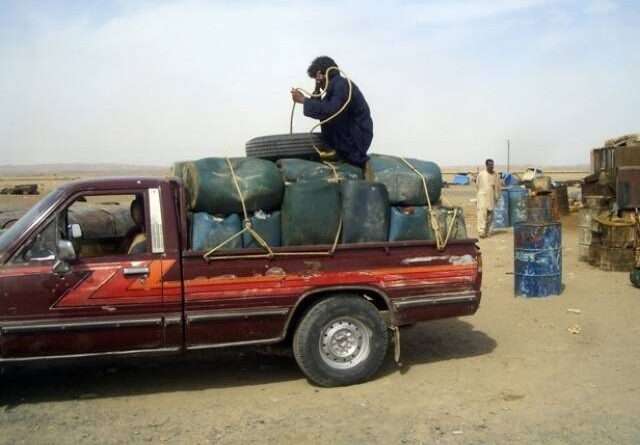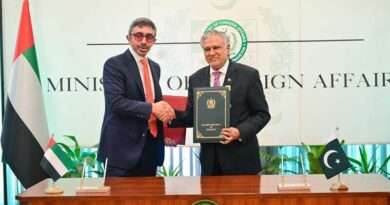Industrialists Warn of Persistent Smuggling in Pakistan
|
Getting your Trinity Audio player ready...
|
Smuggling in Pakistan has been a significant issue for decades, impacting various industries and the economy at large. Despite the government’s measures showing promising results in some sectors, the scale of smuggling remains alarmingly high. This article delves into the root causes of smuggling, the government’s efforts to combat it, and the necessary policy reforms for a sustainable solution.
The Scale of Smuggling in Pakistan
The Tip of the Iceberg
The industrialists stressed that Pakistan is currently addressing only the surface of the smuggling issue. Effective enforcement must be paired with comprehensive policy reforms to tackle smuggling at its roots. Without these reforms, efforts to curb smuggling will remain inadequate.
Recent Government Measures
Prime Minister Shehbaz Sharif recently revealed that stringent measures against smuggled fuel and a reduction in petroleum prices have led to a record sale of petroleum products, surging to 1.58 million metric tonnes in the past 25 months. This 15% year-on-year increase signals a revival in the energy market. The proactive approach to curbing fuel smuggling and expanding digital tools for revenue monitoring were highlighted as key elements in this success.
Importance of Policy Reforms
The Need for Comprehensive Reforms
Osama Siddiqui, a macroeconomic analyst, emphasized that while the government’s focus on energy sector reforms is commendable, other critical sectors such as tobacco and sugar also require urgent attention. The long-delayed “Track and Trace” system, which aims to monitor the sales and production of key industries, including tobacco and sugar, has yet to be fully implemented.
Impact on Revenue Collection
The Federal Board of Revenue’s (FBR) full digitization could be a game-changer for revenue collection in Pakistan. The digital overhaul aims to improve the monitoring and tracking of taxable goods and services, reduce corruption, and streamline the tax collection process. However, the absence of full-scale implementation of the Track and Trace System is a major contributor to the growing illicit trade in several sectors, particularly tobacco.
Government’s Efforts and Challenges
Strengthening Border Controls
In recent years, the government has prioritized strengthening border controls, increasing penalties for smugglers, and implementing technology-driven solutions to curb illicit trade. The Pakistan Customs Department has tightened security along key entry points, including the Afghan and Iranian borders. Advanced scanning equipment, increased personnel, and a new border management system have improved detection rates for smuggled goods.
Success in the Energy Sector
The government’s crackdown on smuggled petroleum products has had a noticeable impact, with the energy sector showing strong growth. However, a similar approach is urgently needed in the tobacco industry, where illegal production and sales have ballooned.
Revenue Impact
An FBR official noted that the introduction of the Track and Trace System in the tobacco sector alone has significantly reduced tax evasion, leading to a revenue increase of over Rs60 billion annually. However, the market share of illicit tobacco products has surged to around 55%, resulting in an annual revenue loss of approximately Rs300 billion to the national exchequer.
Expert Opinions
Digitalization and Enforcement
UAE-based economist Ahmad Aziz Subhani emphasized the importance of digitalization efforts within the FBR and the need for equally strong actions in sectors where revenue leakage is rampant. The government’s success in revitalizing the energy market through strict enforcement should serve as a model for other industries, particularly those dominated by informal markets.
Comprehensive Approach
Subhani called on the government to take a comprehensive approach to further digitization and strict enforcement across all sectors. With an ongoing commitment to reducing smuggling and improving revenue collection, Pakistan could potentially recover billions of rupees annually, helping to stabilize its economy and secure long-term growth.
Conclusion
The issue of smuggling in Pakistan requires a multi-faceted approach, combining stringent enforcement with comprehensive policy reforms. While the government’s measures have shown promising results in some sectors, a broader and more inclusive strategy is essential to address the root causes of smuggling and ensure sustainable economic growth.
FAQs
1. What are the main sectors affected by smuggling in Pakistan? Smuggling significantly impacts sectors like petroleum, tobacco, and sugar in Pakistan.
2. How has the government addressed fuel smuggling recently? The government has implemented stringent measures and reduced petroleum prices, resulting in a record surge in petroleum product sales.
3. What is the Track and Trace System? The Track and Trace System is a digital monitoring system aimed at tracking the sales and production of key industries to reduce tax evasion and smuggling.
4. Why is digitalization important for revenue collection in Pakistan? Digitalization helps improve the monitoring and tracking of taxable goods and services, reduces corruption, and streamlines the tax collection process.
5. What are the challenges in implementing the Track and Trace System? The implementation faces delays and resistance, particularly in the tobacco and sugar industries, which contribute to the growing illicit trade.
SEE ALSO
https://skipper.pk/2024/12/17/boosting-local-medical-device-production-pakistan/




